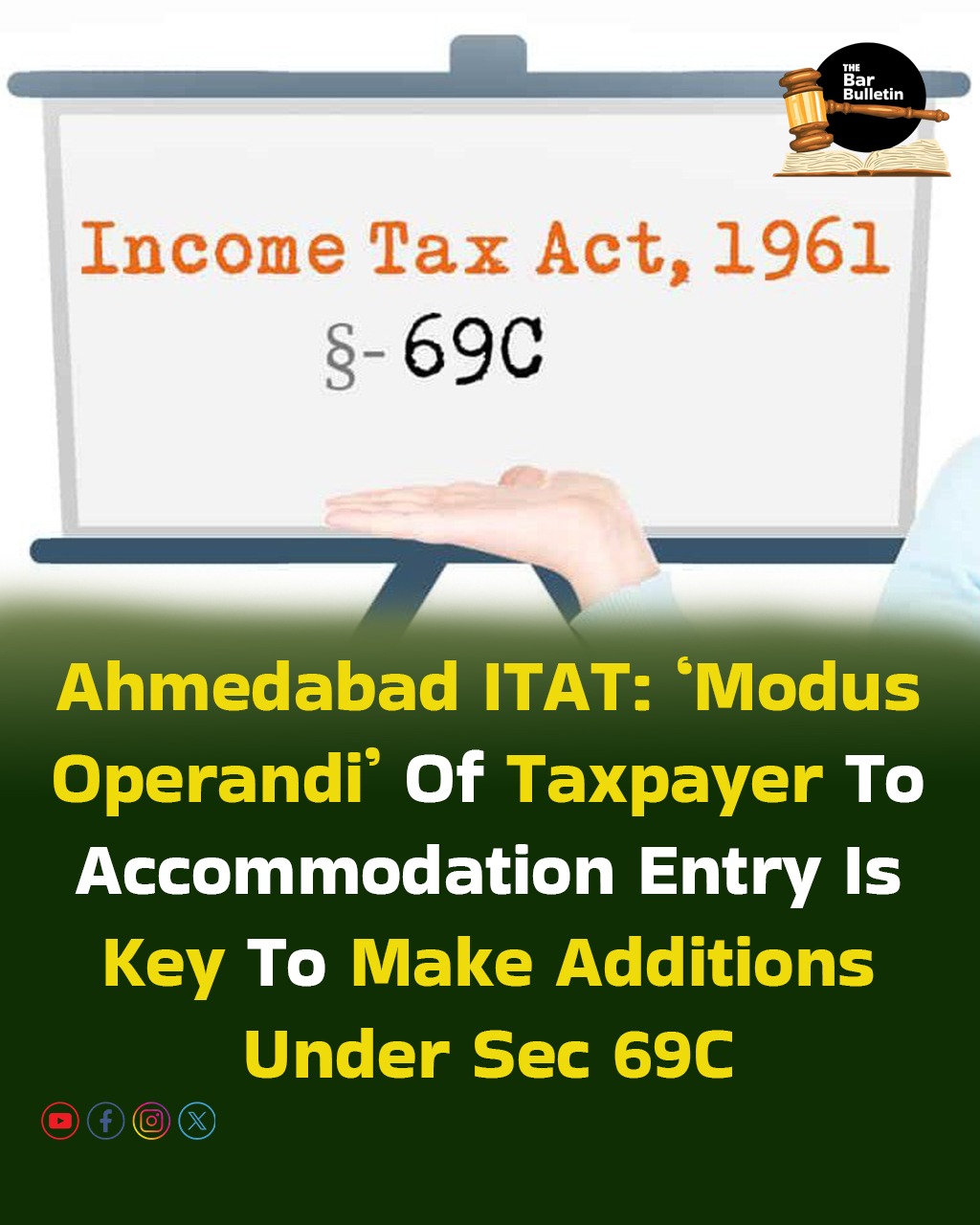The Ahmedabad ITAT recently stressed that the ‘modus operandi’ is essential to establish the nexus of the conduct of the taxpayer against an alleged transaction, and ruled that when the department itself is unable to demonstrate that the taxpayer’s case fits into the modus operandi adopted by the accommodation entry providers of the penny stock scrip, no additions are permitted under Section 69C of the Income Tax Act on account of unexplained expenditure.
The Division Bench comprising Sanjay Garg (Judicial Member) and Annapurna Gupta (Accountant Member) observed that a watertight case had been made against the appellant, revealing a transaction of sale of penny stock scrip, but the Revenue Department has failed to dislodge the onus discharged by the appellant of proving the genuineness of this transaction. The Bench therefore treated the transaction as genuine, and directed the AO to delete the additions of Rs. 1.51 crores made by treating the scrip dealt in by the appellant as a penny stock scrip.
The Bench found that right from the evidence demonstrating the acquisition of the share of the scrip genuinely transacted through the banking channel, and the scrip being parked in a demat account, to the sale of the scrip, all undertaken by a registered broker after paying Security Transaction Tax on the same, was filed by the appellant.
The Bench also pointed out that even though the department has information that the scrip was a penny stock, based on an investigation conducted, revealing the brokers and alleged beneficiaries colluding to make available certain scrips in the market through private placement for very little value and subsequently raising their prices artificially and selling them at very high prices, no case has been made out by the AO to show that the appellant’s trading in the scrip fitted into the modus operandi adopted by the alleged accommodation entry providers.
Briefly, in this case, the appellant had sold scrips of one KDJ Holidayscape and Resort Limited for a consideration of Rs. 1.51 crores and filed ITR showing capital gain of Rs. 1.31 crores on the same, treating it as long-term capital gain. The appellant therefore claimed exemption under Section 10(38) on the entire capital gain. The AO, however, came into possession of information that the scrip traded in by the appellant was a penny stock scrip, and the company KDJ Holidayscape was of no worth but had only engaged in providing bogus accommodation entries of long-term capital gain or loss to various entities.
Opining that the appellant had also indulged in a sale of shares of the said scrip, claiming income earned from the same as exempt, the AO reopened the case and treated the transaction of sale of shares as a bogus transaction. Simultaneously, he made additions on account of the alleged commission paid by the appellant to the entry provider for availing the alleged accommodation entry, amounting to Rs. 3.02 lacs. The commission income was also added to the income of the appellant as an expenditure incurred from unexplained sources under Section 69C. On appeal, the CIT(A) confirmed both the additions.
Appearances:
Sarju Mehta, for the Appellant/ Taxpayer
Sudhakar Verma, for the Respondent/ Revenue



